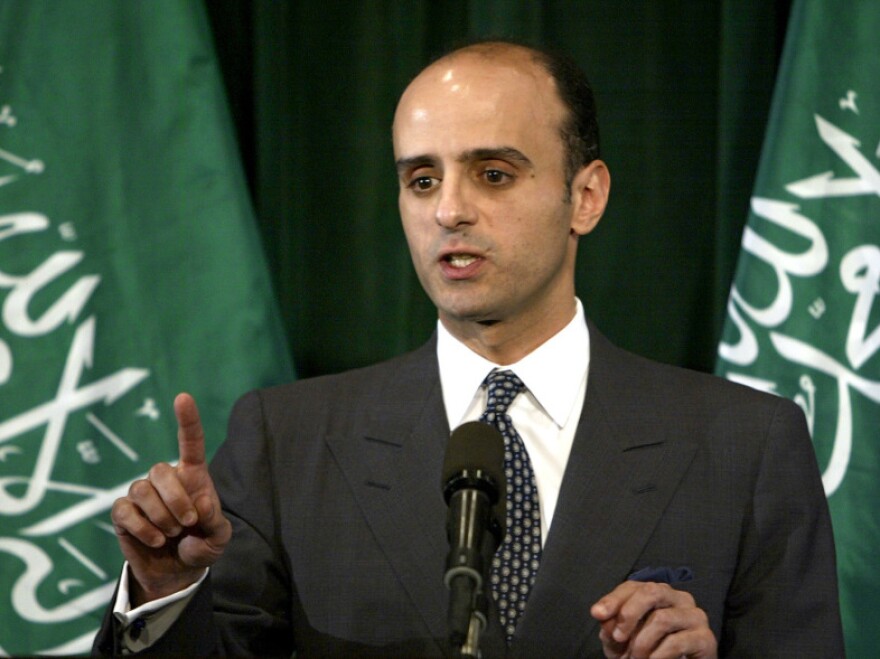In capitals around the world, U.S. diplomats are laying out evidence that elements of Iran's government plotted to assassinate Saudi Arabia's ambassador to the U.S.
The United States is taking the lead in the push to hold Iran accountable. But Saudi Arabia may want to respond to Iran in its own way, and its weapon could be oil.
Iran and Saudi Arabia for decades have been rivals in the Muslim world — Iran as the protector of Shia Muslims, Saudi Arabia as the pre-eminent Sunni power. Iran's regional clout has grown in recent years. But the Saudis have an advantage of their own — in the global oil market, where both countries are big players.
Whereas Iran is producing all the oil it can and needs all the oil money it can earn, the Saudis have spare capacity. If they want to drive the price of oil down, they can increase production. A lower oil price would hurt Iran more than it would hurt the Saudis, because Iran depends so much on its oil income.
"The Iranian economy is indeed ailing, and it's vulnerable," says Mohsen Milani, an expert on Iran at the University of South Florida. "If the Saudis can manage to bring down the price of oil significantly, they could hurt Iran."
It would be nonviolent but effective retaliation for the alleged Iranian effort to assassinate one of Saudi Arabia's leading diplomats.
In fact, if the Saudis were to increase their oil production to the maximum, it could hurt Iran disproportionately.
Reva Bhalla, the director of analysis at Stratfor, a private intelligence firm, points out that Iran and Saudi Arabia compete directly, selling to the same customers.
"Most of that Saudi output would be going to Asia, which is Iran's primary market, and would be of relatively similar grade, so the Saudis would be hitting both Iran's main customer base and its product type," she says.
But this is theoretical, Bhalla says. It's not clear whether Saudi Arabia really could punish Iran economically right now. The question is whether it could boost oil production enough to drive the price down to a point where Iran's oil revenues would be significantly affected. Many of the presently unused Saudi oil facilities, she says, have been out of commission for some time. And a long-term effort would be needed.
"They would have to sustain that level of production for a while to make a significant dent in price and deal most importantly with the repercussions from Iran in that kind of trade war," Bhalla says.
Among the possible repercussions: Iran could threaten to close the Straits of Hormuz, through which 60 percent of Persian Gulf oil currently has to pass.
In sum, while Saudi Arabia is theoretically in position to use its oil capability against Iran, the practical issues around doing that are enormous.
"It's a very blunt weapon, very uncertain in terms of its impact, how low the prices go, who else is affected," says Daniel Yergin, chairman of IHS Cambridge Energy Research Associates. "So this is not something that can be a fine-tuned policy."
And on this point, among these experts, a consensus: Saudi Arabia probably cannot play the oil card against Iran now, even if it would like to do so, in response to the alleged plot against its ambassador to Washington.
"They are going to do their best, but I don't think they are going to be very successful," says professor Mohsen Milani.
And, Riva Bhalla of Stratfor says, "This is something I think the Saudis are keeping in reserve. But I haven't seen any indication they're going to be going down this route."
That means Saudi Arabia and Iran may be sliding into a cold war, but an overt confrontation on either the military or economic battlefield is probably unlikely for now.
Copyright 2021 NPR. To see more, visit https://www.npr.org.




